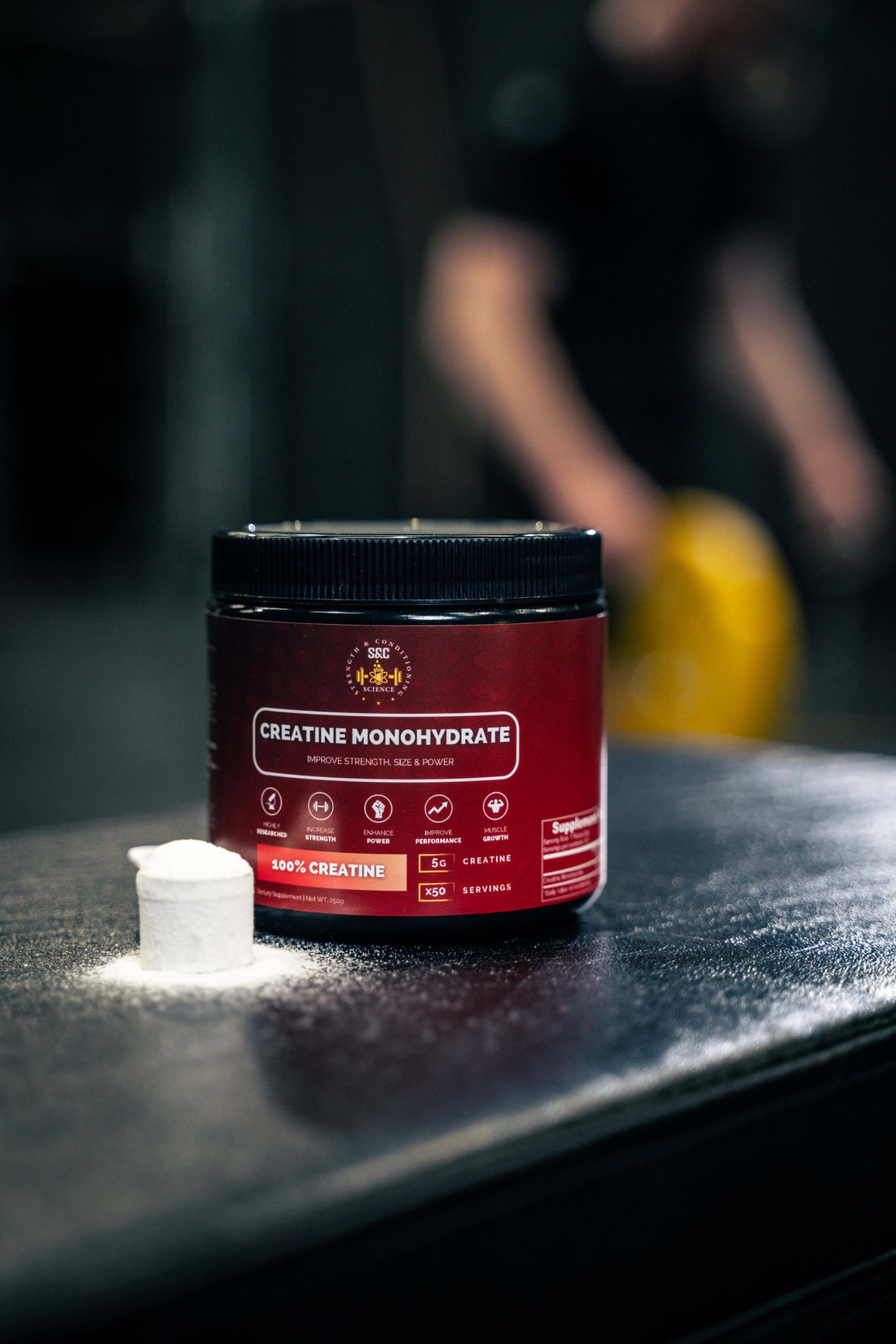
Creatine Machine
Share
One of the world's most researched, impactful and popular supplements available.
Creatine is a naturally occurring compound found in small amounts in certain foods and synthesized by the body, primarily in the liver, kidneys, and pancreas. It plays a significant role in the body's energy metabolism, particularly in short-duration, high-intensity activities.
Creatine is a popular dietary supplement among athletes, particularly those engaged in strength, power and velocity-based sports.
Here's an overview of creatine and its relevance to athlete performance and recovery:
Roles in the Body:
-
ATP Production: Creatine's primary role is to support the rapid production of adenosine triphosphate (ATP), which is the body's primary source of cellular energy. During short bursts of intense exercise, like weightlifting or sprinting, the body relies on ATP for energy, and creatine (phospho-creatine) helps regenerate ATP more quickly (by donating a phosphate group to ADP).
-
Muscle Contraction: Creatine is essential for muscle contraction, making it particularly valuable for activities that involve high-force and/or high-velocity actions, such as during resistance training involving weightlifting, loaded jumps, ballistics, throws, plyometrics and other maximal intent actions.
Sources of Creatine:
-
Food Sources: While creatine can be obtained from certain animal-based foods like red meat, fish, and poultry, the amount present in these foods is relatively low. An individual would need to consume a significant quantity of these foods to achieve the levels typically used for performance enhancement.
-
Supplement Sources: Creatine supplements are widely available and commonly used by athletes. Creatine monohydrate is the most researched and commonly used form. It's typically consumed in in powder or capsule form.
Who Can Benefit from Creatine:
-
Strength and Power Athletes: Athletes involved in sports that require short bursts of intense effort, such as weightlifting, powerlifting, sprinting, and certain team sports (e.g., football and basketball), can benefit from creatine supplementation. It can improve maximal strength, power outputs and support muscle repair.
-
Bodybuilders: Bodybuilders often use creatine to enhance their muscle size (muscle hypertrophy) and strength during resistance training.
-
Recovery from High-Intensity Exercise: Creatine may aid in faster recovery between sets during strength training or high-intensity interval workouts, in addition to recovery between sessions by supporting muscle tissue regeneration.
- Injured & Rehabilitation Athletes: Creatine supplementation can aid muscle mass retention and limit muscle atrophy (degradation) following injury and limb immobilisation. Growing evidence that creatine plays a neuroprotective role and may limit damage after concussion.
Reasons Athletes Consider Creatine Supplements:
-
Improved Exercise Performance: Creatine supplementation is associated with enhanced performance in activities that involve short duration, high-intensity actions, often of maximal intent, such as heavy strength training, ballistic jumps and sprinting.
-
Increased Muscle Mass: Creatine can lead to an increase in muscle mass, particularly when combined with resistance training. This can be advantageous for athletes seeking to maximize their muscle size and strength.
-
Reduced Muscle Fatigue: Creatine may help reduce muscle fatigue during repeated bouts of high-intensity exercise, potentially allowing athletes to train harder and longer.
-
Faster Recovery: Some athletes use creatine to aid in post-exercise recovery, especially when engaging in intense and frequent training sessions.
It's important to note that not all athletes may experience the same benefits from creatine supplementation, as individual responses can vary.
